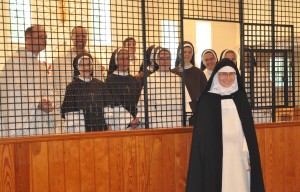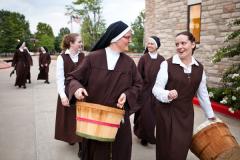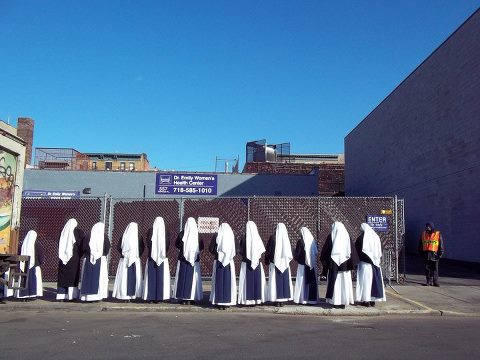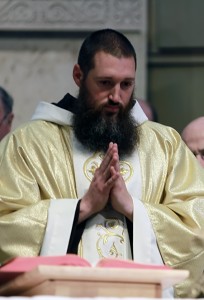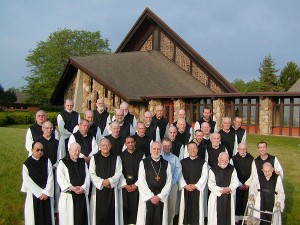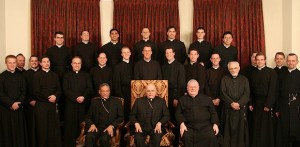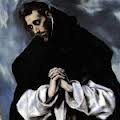 On August 8th, the feast of of St. Dominic, Pope Benedict XVI gave a talk at Castel Gandolfo about Dominic’s life of prayer. He says, “He left behind no writings on prayer, but the Dominican tradition has collected and handed on his living experience in a work titled: The Nine Ways of Prayer of St. Dominic. This book was composed between the year 1260 and 1288 by a Dominican friar. It helps us to understand something of the saint’s interior life, and it also helps us, as different as we are, to learn something about how to pray.”
On August 8th, the feast of of St. Dominic, Pope Benedict XVI gave a talk at Castel Gandolfo about Dominic’s life of prayer. He says, “He left behind no writings on prayer, but the Dominican tradition has collected and handed on his living experience in a work titled: The Nine Ways of Prayer of St. Dominic. This book was composed between the year 1260 and 1288 by a Dominican friar. It helps us to understand something of the saint’s interior life, and it also helps us, as different as we are, to learn something about how to pray.”
Here are his nine ways of prayer:
1. Inclinations: Assume a humble posture before God, one that emphasizes your own lowliness before the greatness of God.
2. Prostrations: Lie face down before the altar of God reciting the verse from Saint Luke’s gospel (18:13): ‘Lord be merciful to me a sinner.’
3. Penance: Perform penance by disciplining yourself. Self-discipline is needed and vital to mature spiritual growth.
4. Genuflections: Remain before the altar looking at the Cross with frequent genuflections.
5. Contemplation: Stand before the altar in contemplation with the palms of your hands turned inwards. Then clasp your hands and raise them to your shoulders all the while in fervent prayer.
6. Earnest Intercession: Pray with arms outstretched in the form of a cross. Quote scripture appropriate to this posture.
7. Supplication: Standing erect stretch your whole body upwards with hands joined and raised towards heaven. Often Dominic would open his hands as though in receipt of something. Pray aloud saying: ‘Hear O God, the voice of my prayer when I pray to you, when I lift up my hands to your holy temple.’ (Psalm 27)
8. Thoughtful Reading: Of scripture or scripture commentary. Lose yourself both intellectually and emotionally in this reading, sometimes whispering questions posed in the text.
9. Praying on a Journey: While traveling, lose yourself in prayer, meditation and contemplation.
Pope Benedict adds that the saint “reminds us of the importance of exterior attitudes in our prayer: kneeling, standing before the Lord, fixing one’s gaze on the Crucified, pausing to recollect oneself in silence are not secondary; rather, they help us to place ourselves interiorly, with the whole of our person, in relation to God.”
Like this:
Like Loading...
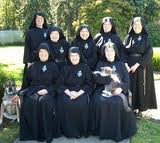 The Passionists in Erlanger, Kentucky, make altar breads as a means to support their apostolate of intercessory prayer for the congregations of Passionsists, for the Church and for the world. When a 2nd grade class made a visit to the monastery ahead of their first Communion, they wanted to know all about the process altar bread-making. Because the nuns are cloistered, the children were not allowed into the work area so this video was made to open a door into this very prayerful manufacturing “facility.”
The Passionists in Erlanger, Kentucky, make altar breads as a means to support their apostolate of intercessory prayer for the congregations of Passionsists, for the Church and for the world. When a 2nd grade class made a visit to the monastery ahead of their first Communion, they wanted to know all about the process altar bread-making. Because the nuns are cloistered, the children were not allowed into the work area so this video was made to open a door into this very prayerful manufacturing “facility.”
